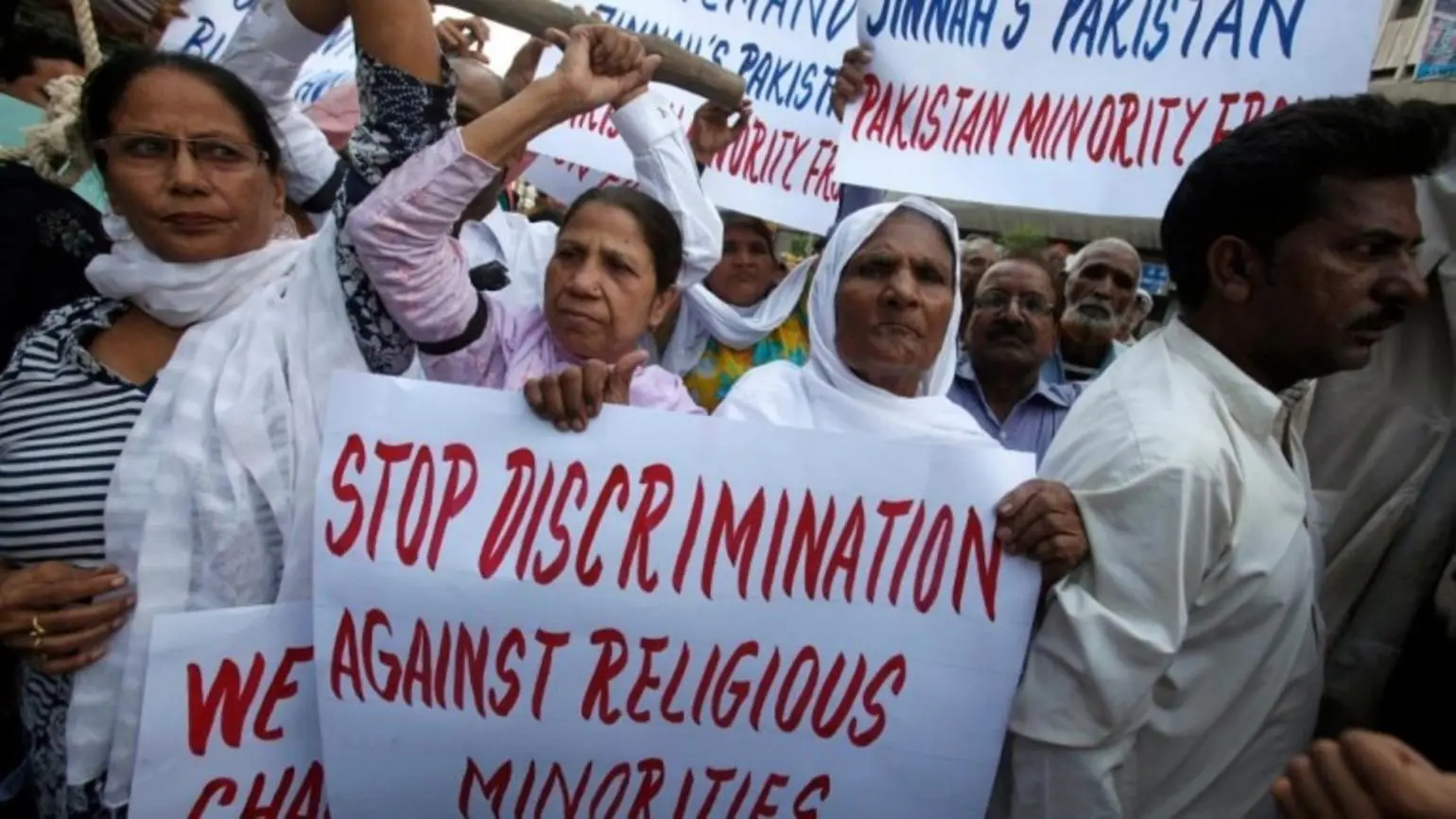By: Zara Amoon
International Human Rights Day, observed annually on December 10, commemorates the adoption of the Universal Declaration of Human Rights (UDHR) by the United Nations in 1948. This day emphasizes the universal rights entitled to all individuals, transcending boundaries of race, religion, ethnicity, and nationality. In Pakistan, the occasion provides an opportunity to assess the nation’s progress, acknowledge persistent challenges, and explore pathways for advancing human rights within its unique socio-political and cultural context.
Pakistan’s foundation in 1947 was rooted in securing rights for the Muslims of the Indian subcontinent, with Quaid-e-Azam Muhammad Ali Jinnah envisioning a state where citizens of all faiths would enjoy equal rights. Jinnah’s landmark speech on August 11, 1947, underscored his commitment to religious freedom and equality. However, translating this vision into practice has remained a significant challenge. The country’s Constitution enshrines fundamental rights such as freedom of speech, equality before the law, and protection against discrimination, while Pakistan has also signed key international treaties, including the International Covenant on Civil and Political Rights (ICCPR). Despite this robust legal framework, implementation continues to fall short.
Pakistan faces a host of human rights challenges, with gender inequality and violence against women among the most pressing issues. Women continue to face systemic discrimination, often exacerbated by cultural norms and patriarchal attitudes. Crimes such as honor killings, domestic violence, and forced marriages remain prevalent, despite legislative measures like the Domestic Violence (Prevention and Protection) Act and the Anti-Rape Ordinance. Weak enforcement and societal taboos limit the effectiveness of these laws, calling for a combination of legal reforms and public education to address deeply ingrained biases.
Freedom of speech and press is another area of concern. Journalists and activists in Pakistan face threats ranging from censorship and intimidation to physical violence. High-profile cases, including the murders of Daniel Pearl and Arshad Sharif, highlight the dangers faced by those advocating for transparency and accountability. Social media, once a platform for free expression, is now subject to restrictive regulations under laws such as the Prevention of Electronic Crimes Act (PECA), which critics argue stifle dissent rather than address legitimate concerns.
Religious minorities, including Hindus, Christians, Sikhs, and Ahmadis, continue to face discrimination and persecution. Blasphemy laws, often weaponized for personal grievances, pose significant risks to these communities. The case of Asia Bibi, a Christian woman acquitted after spending years on death row, exemplifies the challenges minorities face. Additionally, incidents of forced conversions of minority girls remain widespread, despite proposed legislative measures to curb the practice.
Children in Pakistan also endure significant human rights violations, including child labor, child marriage, and limited access to education. With nearly 22.8 million children out of school, Pakistan has one of the world’s highest rates of educational exclusion. Despite legislation like the Child Protection and Welfare Act, weak enforcement allows these issues to persist.
Economic inequality further exacerbates human rights concerns, particularly in labor rights. Workers in informal sectors often face exploitative conditions and inadequate wages. Women and children are disproportionately affected. Although Pakistan has ratified key International Labour Organization conventions, the gap between policy and practice remains wide.
Persons with disabilities face additional challenges, including social stigma, limited accessibility, and inadequate representation. Government initiatives, such as the Disabled Persons (Employment and Rehabilitation) Ordinance, have been introduced but require greater focus on implementation to create a more inclusive environment.
Despite these challenges, Pakistan has made progress in some areas. The establishment of the National Commission for Human Rights (NCHR) and the inclusion of human rights education in schools represent positive steps. Civil society organizations and grassroots movements, such as the Aurat March and the Edhi Foundation, continue to play critical roles in advocating for marginalized communities. The judiciary has also contributed to protecting fundamental rights through landmark rulings.
On International Human Rights Day, experts and advocates emphasize the importance of strengthening legal frameworks, promoting education and awareness, empowering marginalized groups, ensuring accountability, and leveraging technology to address human rights violations. By fostering a culture of tolerance, inclusivity, and respect, Pakistan can align its domestic policies with global human rights standards.
The day serves not only as an occasion for reflection but also as a call to action. As Pakistan navigates its complex socio-political landscape, the commitment to building a society where every individual is treated with dignity and respect must remain a guiding principle. International Human Rights Day underscores the need for collective efforts to achieve the ideals enshrined in the UDHR and Pakistan’s Constitution, paving the way for a more equitable and inclusive future.


